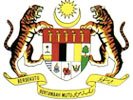Choose one!.
Ambitious RM177-billion Northern Corridor growth blueprint is aimed at lifting region to world-class status, while offering hope to the rural poor.
Posted by GjoE at 7:19 AM
PRIME Minister Datuk Seri Abdullah Ahmad Badawi yesterday launched the ambitious RM177 billion Northern Corridor Economic Region (NCER) development plan aimed at transforming the mainly agricultural north into a logistics, food-processing and tourism powerhouse by 2025.
The plan, covering Penang, Perak, Kedah and Perlis, aims to create 500,000
jobs by 2012, rising to one million by 2018, besides increasing the region’s GDP from RM52.7 billion in 2005 to a targeted RM214 billion by 2025.
Logistics initiatives include deepening and expanding the Penang port to
service Thailand and Sumatra, expanding an air cargo centre in Penang, and
a double-track rail link from Ipoh to Padang Besar on the border with Thailand.
The development undertaking is also aimed at lifting one of the poorest parts of the country to world-class status by 2025.
This growth blueprint for Perlis, Kedah, Penang and north Perak is expected to bring in a total of RM177 billion in investments. A third of it will come from the government, over the NCER’s 18-year duration, Datuk Seri Abdullah Ahmad Badawi said.
"Some 43 per cent of the total population in the four states are in the rural areas and we intend to bring greater development to them.
"They are actually very industrious since we can find many products from the villages in the supermarkets while some have gained international recognition.
"We want to help them boost their economic activities," Abdullah said at the unveiling of the NCER blueprint, developed by Sime Darby Bhd, here, yesterday.
Present were Kedah Menteri Besar Datuk Seri Mahdzir Khalid, his counterparts from Perak and Perlis, Datuk Seri Mohd Tajol Rosli Ghazali and Datuk Seri Shahidan Kassim and Penang Chief Minister Tan Sri Dr Koh Tsu Koon.
Also present among the 10,000 people at the ceremony, held at the Muda Agricultural Development Authority complex, were cabinet ministers, Sime Darby chairman Tan Sri Ahmad Sarji Abdul Hamid and group chief executive officer Datuk Seri Ahmad Zubir Murshid.
Abdullah, passionate in his quest to help the rural poor, spoke on a wide range of topics including the need for the people to be pro-active towards development and the input and role of the private and public sectors.
He said by introducing modern processing and marketing techniques, cottage industries could be transformed into bigger manufacturing entities.
"This would create job opportunities in rural areas and help check rural migration to urban areas."
Citing a success story in Sik, he said a group of villagers managed to break out of the poverty cycle after participating in agricultural projects introduced by the state government.
"That is why I say the people, especially in the rural areas, are eager to improve their lot. They are anxious to know about our programmes and we want to bring more development projects to them.
"The projects are also meant to narrow the gap between the poor and the rich," he said.
Abdullah said cottage industries should not limit themselves to bahulu, a flour-based confection that is easy to mass produce, but must add value to their products, including in branding and packaging.
He said the four state governments would play complementary roles in the blueprint.
"Each state was chosen for certain economic activities because they are good at them or already have the basic infrastructure in place."
On the choice of Sime Darby, Abdullah said it was a global giant and an expert in the various economic sectors selected under the NCER.
"It is also a government-linked company that knows what the government wants to do for the people. It is a responsible member of the private sector that is very professional in its work to achieve the government’s goals.
"To make the NCER a success, we need the greatest commitment from the public and private sectors and especially the people that we want to help."
To begin with, he said the government had allocated RM5 billion for the initial phase of the NCER.
Abdullah said the Northern Corridor was different from the Iskandar Development Region (Iskandar) in Johor.
"The challenges and opportunities are also different but the aims are similar and that is to help the people.
"The NCER is about growth with social equality while Iskandar is urban-centred growth," he said, adding that the poverty rate in Kedah and Perlis was much higher than the national average.
Abdullah later launched estate-style padi farming in Jerai, the first of its kind in Kedah, to mark the Kedah-level NCER launching.
The 153ha estate was formed by merging the padi fields of 101 farmers.
Labels: News







